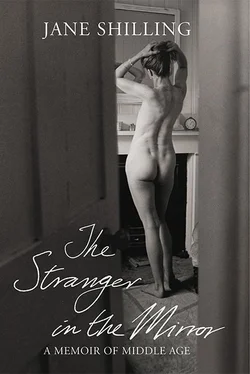At the top of the hill by the church I turned into the rectory and parked the car. Crossed the road, tottering in flash London mourning of high heels, tight black skirt and diamonds, hefting on my hip a tray of cheese scones and fairy cakes for the funeral tea. Opened the heavy church door of blackened oak with its familiar creak and there rose the scent, instantly recognisable though I had not smelt it in three decades, of cold stone, damp carpet, wood polish, candle smoke, hymn books and incense.
Twice in a month we, the assembled family and friends of the departed, considered the intelligence, resolution and high spirits that took my Latin teacher and her husband from families in small Welsh villages, unaccustomed to educating their children at university, to colleges in Oxford and Cambridge and minds stocked with mediaeval French and Latin. Twice in a month we sang ‘Cwm Rhondda’ in their honour. Twice in a month the passing bell was tolled in the bell tower whose quarterly chimes marked out the hours of my childhood; and I looked round at the congregation – my old headmistress, dark and glittering as she was 40 years ago when I used to skip a rope in the shade of the lilac trees in the school playground; a scattering of my old schoolfriends, the lineaments of our childish faces visible in our middle-aged faces only to each other, like secret runes – and I thought, these are the only people who remember me as a child. When they are gone, my childhood will have vanished.
After the first funeral I drove back to London in tears, gripped with bitter regret for the love that my teacher and her husband had given so freely, and I had absorbed so greedily but never repaid; never said thank you, or tried to reciprocate later, when I could easily have afforded to. I said some of this to their children, who said, But they were proud of you. They read everything you wrote. As though that were good enough.
The second time, I followed the path round to where they both now lay buried in new graves, side by side in the shadow of the ancient church and the young yew tree planted to mark the millennium. And then, in the gathering dusk, I walked up the narrow path between the church and the school that I had travelled every schoolday between the ages of five and 11. Past the dark thicket of trees behind a wooden paling fence; along the cinder alley between the orchard and the blackthorn hedge, and out at the school gate.
Changed, now, a little, from my memory of it: a post-and-rail fence instead of the hawthorn hedge that used to enclose the asphalt playground where we rolled our marbles and fought with conkers. The Nissen hut full of wooden hoops and coiled skipping ropes vanished and replaced with airy brick-and-glass classrooms.
But the pointed Victorian Gothic façade of the old schoolhouse was there still, and so was the orchard at the back of the classrooms where I used to gaze out from my desk on early summer afternoons, chewing my pencil, watching the sparrows quarrelling among the apple blossom and thinking, thinking, about time and words and what might happen next.
‘My concern is not to depict the individual as he exists,’ wrote Montaigne, ‘but to show him in the act of becoming. I paint the passing of time – not from one age to another, in seven-year stages, as people say – but from day to day and minute to minute. My story changes with the passing hour.’
A story such as this of mine changes, like Montaigne’s, with each passing day and minute. One has to find a convenient place at which to stop – and inevitably ends are left dangling.
Some I can tidy up. I did, in the end, decide to try what life might be like as part of a couple. But I made up my mind too late. My lover found that he liked the idea of me better than the reality and, with a certain symmetry, told me so one New Year’s Eve.
Towards midnight I made a small package of the things he’d given me and the letters he’d sent over the years, and walked down to the Thames, intending to throw it in. But I’d forgotten a crucial detail. The tide was out. Instead of a satisfying splash as I hurled the packet into the stream, there would have been only a little squelch as it landed on the muddy foreshore. So I took it home again. In matters of the heart, my timing had always been lamentable.
A year after losing my newspaper job I was offered another, just in time to avert real disaster. It wasn’t the same sort of job, but it meant that we could stay living in the same house, and even that I could keep my old mare, who was ageing, as animals grieve their owners by doing, even faster than me. An injury ended her jumping career. But I tried a side saddle on her, and she took to it with verve.
My son turned out to have the knack, which I have always admired in other people and never mastered myself, of working quite hard while appearing to make no effort at all. After banishing me firmly from his academic life, he passed his A levels and got a place at an excellent university, a very long way from home.
It was so far away that it took us two days to drive there, and on the way a strange thing happened. The panicky anxiety about the future that had poisoned the past two years vanished as we got into the car laden with the brand-new domestic impedimenta of his life away from home. And on the long drive northwards the old loving complicity of his childhood returned as though it had never gone. Except that it wasn’t quite the same, for he was a grown man now, and my job of bringing him up was done. As I unpacked his stuff in his new room, one of his flatmates stuck his head round the door. Are you moving in?’ he asked, not seeing Alexander, who was bringing up the last of the boxes.
‘No,’ I said. ‘He is. I’m just a mother.’
My own ageing has surprised me a little by its swiftness. ‘Each day in the mirror I watch death at work,’ wrote Cocteau. And that is what I feel every morning as the lineaments of my face swim into focus in the glass and I see reflected there not the face I still think of as mine – the face to which I became accustomed during the first three decades of my adult life – but a version of those features that I can’t quite connect with the person I still feel myself to be.
Of course this process is troubling, especially after a sleepless night, or too much to drink, or on a fine spring morning when I jump out of bed feeling 20 years old again, and see my 50-year-old self peering back at me. Time passes no more swiftly than it did when I was young, but I am haunted by the sense of how little of it is left.
It is a melancholy calculation, but not, in its way, uninteresting. I have had to learn once, at the end of my childhood, to inhabit a set of changing features, and now I am having to do so again. Like the narrator of Marguerite Duras’s novel, The Lover , I watch the process ‘with the same sort of interest I might have taken in the reading of a book…’ This is my life story, written here on my face, and who knows what the next chapter may bring.
While writing The Stranger in the Mirror , I found the following books helpful:
Athill, Diana, Somewhere Towards the End (Granta Books, 2008)
Barnes, Julian, Nothing to Be Frightened Of (Jonathan Cape, 2008)
de Beauvoir, Simone, Force of Circumstance , translated by Richard Howard (André Deutsch and Weidenfeld and Nicolson, 1965)
— All Said and Done , translated by Patrick O’Brian (André Deutsch and Weidenfeld and Nicolson, 1974)
— The Second Sex , translated and edited by H. M. Parshley (Penguin, 1974)
Braun Levine, Suzanne, The Woman’s Guide to Second Adulthood
— Inventing the Rest of Our Lives (Bloomsbury, 2006)
Читать дальше












